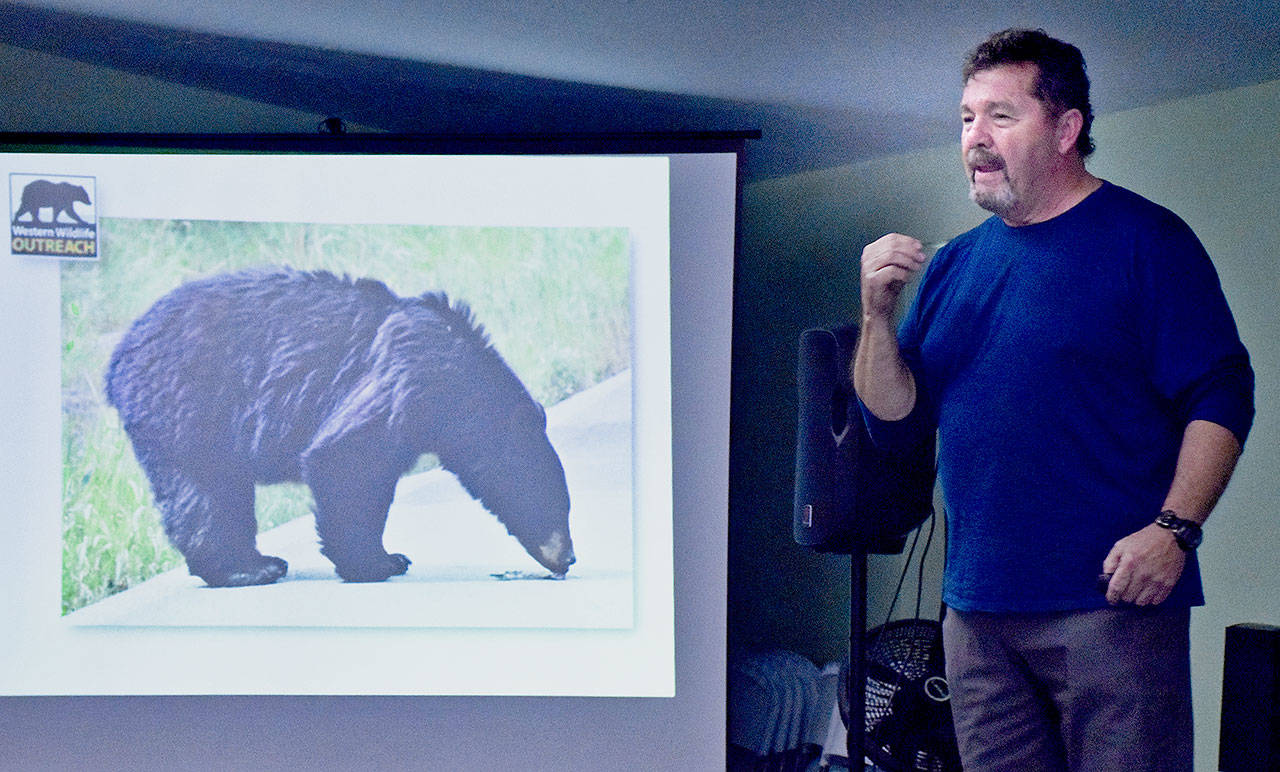By Scott D. Johnston
For Grays Harbor News Group
With a number of black bear sightings and a raft of social media comments in and around Ocean Shores lately, local resident and environmental and wildlife activist David Linn thought it would be a good time for an informational presentation on the topic.
He arranged for the Community Voices meeting at the North Beach Senior Center on Nov. 14 to feature a presentation by Darrell Smith, a wildlife biologist and large carnivore specialist who volunteers with Western Wildlife Outreach. The advocacy group is a Port Townsend organization that began in 2002 as the Grizzly Bear Outreach Project, and has since expanded to include what Smith termed “the big four” of Washington state’s 23 carnivores – grizzly bears, black bears, cougars or mountain lions, and grey wolves.
Of those, the largest population by far in Washington is the 25,000 or so black bears, Smith explained. That compares with about 2,000 cougars, 120 grey wolves and 60 grizzly bears whose range from southern Canada includes a bit of northern Washington.
About 40 folks in attendance heard Smith say that black bears, in particular, have been successful here because they are big, have large brains and “the best bear habitat on the West Coast, maybe the whole country, is Western Washington.”
He discounted some rumors and beliefs about black bear attacks on people, claiming there has only been one human killed by a black bear in the past 100 years in Washington. He said the greater danger involving wild animals here and across the country are deer, which are involved in an estimated average of 19,000 animal-vehicle collisions and 140 human deaths yearly, nationwide.
Smith also explained that black bears, even sows with cubs, generally try to avoid human contact and are usually aware of a human’s presence long before the human notices them. That’s due to the bears’ strong sense of smell and footpads that are very sensitive to the ground vibrations produced merely by a human walking. He said a bear will often leave the area before a person ever sees it.
He said he usually carries bear spray, and it is very effective, although he has rarely had to use it. In the event of an encounter, he explained, “make yourself look bigger, stop and look at them, show them you’re human, yell.” Even with cubs nearby, their biggest concern is to get themselves and their babies away from you.
Detailed information on all of the state’s large carnivores, including safety tips and more, is available on the advocacy group’s website, www.westernwildlife.org.


